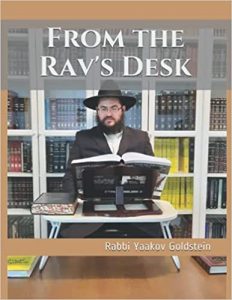
What is it: Ezekiel bread is a type of sprouted grain bread. It’s made from a blend of sprouted whole grains and legumes, including wheat, barley, beans, lentils, millet, and spelt. This combination is inspired by a recipe found in Ezekiel 4:9, “Take for yourself wheat, barley, beans, lentils, millet, and spelt; put them into one vessel and make them into bread for yourself. You shall eat it according to the number of days that you lie on your side; three hundred and ninety days you shall eat it.” Because the grains are sprouted before being baked, Ezekiel bread is often considered more nutritious compared to regular bread. Sprouting can increase the levels of certain nutrients and make the grains easier to digest. It’s usually a good source of protein, fiber, and various vitamins and minerals. Plus, it’s typically free of added sugars, preservatives, and other artificial ingredients. It’s popular among health-conscious individuals and those looking for alternatives to traditional bread.
Does Ezekiel bread contain actual grain flour aside for the sprouted grain? Ezekiel bread is mainly made from sprouted grains, but some varieties can include whole wheat flour. Check the label for specifics, since ingredients can vary.
Is the grain that grew the sprout also ground in the Ezekiel bread? Yes, the whole grains that produce the sprouts are typically ground up to make Ezekiel bread. The process involves using the entire grain, along with the sprouts, which contributes to the bread’s dense, nutritious profile.
How its made? The sprouted grains in Ezekiel bread are first soaked in water, which initiates the sprouting process. Once the sprouts emerge, the grains are drained and ground up, forming a dense, dough-like mixture. This mixture is then used to make the bread, providing a rich, wholesome base for Ezekiel bread.
Can sprouts like Brussels sprouts, alfalfa sprouts also make Ezekiel bread? Sprouts like Brussels sprouts and alfalfa sprouts are different from grain sprouts like wheat, which contain the starches and proteins needed for bread-making, and hence cannot be used for bread making.
The blessing on ground wheat sprouts:[1] There is a dispute in Poskim as to whether flour made from ground wheat sprout can become Mezoznos/Hamotzi when baked.
- Its blessing:
The before blessing on Ezekiel bread which contains some grain is Hamotzi.[2] [If indeed it were to be determined that one’s Ezekiel bread was made from sprouts without any grain at all, not even its own grain, then its blessing would be Shehakol and Borei Nefashos.]
After blessing: Regarding the after blessing, since its not possible to know how much kernel flour is actually inside, one is to recite a Borei Nefashos on another food, or eat it within a meal of bread [which would defeat the purpose for the healthy minders].
[1] See Michaber 202:18, Admur 202:21 and Seder 6:21 that the rightful blessing is only said on the main fruit; Igros Moshe O.C. 4:46 [says is Mezonos/Hamotzi]; Bercha Kehalacha [says is Shehakol]; Vezos Haberacha Luach Habrachos Nevet Chita footnote 50;
[2] The reason: There is a dispute in Poskim [see above] as to whether flour made from ground wheat sprout become Mezoznos/Hamotzi when baked. Regarding the proofs of the Sefer Bracha Lehalacha from Admur, indeed it would seem that the sprouts would be Hadama and their flour Shehakol as majority of the world does not plant the seed for this purpose. However, this is only relevant to actual sprout flour. However, Ezekiel bread flour is made also with the kernel that grew the sprouts [see above], and hence it contains an element of 100% real flour, and therefore without doubt is Hamotzi.
- Question: [Friday 18th Tamuz 5780]
שלום וברכה
What is the brocho on Ezekiel bread
My thoughts on that is that its brocho is shehakol like sprouts themselves.or at most hoadomo because עילויא בפת .
Botanically speaking, sprouts are plants , not grains.
Also in the ספר ברכה כהלכה (אליהו קליקשטיין חלק א׳ הערה 30 states clearly that its brocho is shehakol also using a proof from the Alter Rebbe’s Shulchan Aruch & Siddur. He also disputes what’s written in Igros Moshe.
Thank you
הצלחה רבה
Answer:
There is a dispute in Poskim as to whether flour made from ground wheat sprout become Mezoznos/Hamotzi when baked. Regarding the proofs of the Sefer Bracha Lehalacha from Admur, indeed it would seem that the sprouts would be Hadama and their flour Shehakol as majority of the world does not plant the seed for this purpose. However, this is only relevant to actual sprout flour. However, Ezekiel bread flour, from what I have seen many times, is made also with some of the kernel, and hence it contains an element of 100% real flour, and therefore without doubt its blessing is Hamotzi. The question would be regarding the after blessing, and since its not possible to know how much kernel flour is actually inside, I would say that one is to recite a Borei Nefashos on another food, or eat it within a meal of bread [which would defeat the purpose for the healthy minders]. If indeed it were to be determined that one’s Ezekiel bread was made from sprouts without any grain at all, then its blessing would be Shehakol and Borei Nefashos.
Sources: See Michaber 202:18, Admur 202:21 and Seder 6:21 that the rightful blessing is only said on the main fruit; Igros Moshe O.C. 4:46 [says is Mezonos/Hamotzi]; Bercha Kehalacha [says is Shehakol]; Vezos Haberacha Luach Habrachos Nevet Chita footnote 50;
https://shulchanaruchharav.com/halacha/the-blessing-over-legume-breads-and-crackers/


Leave A Comment?
You must be logged in to post a comment.